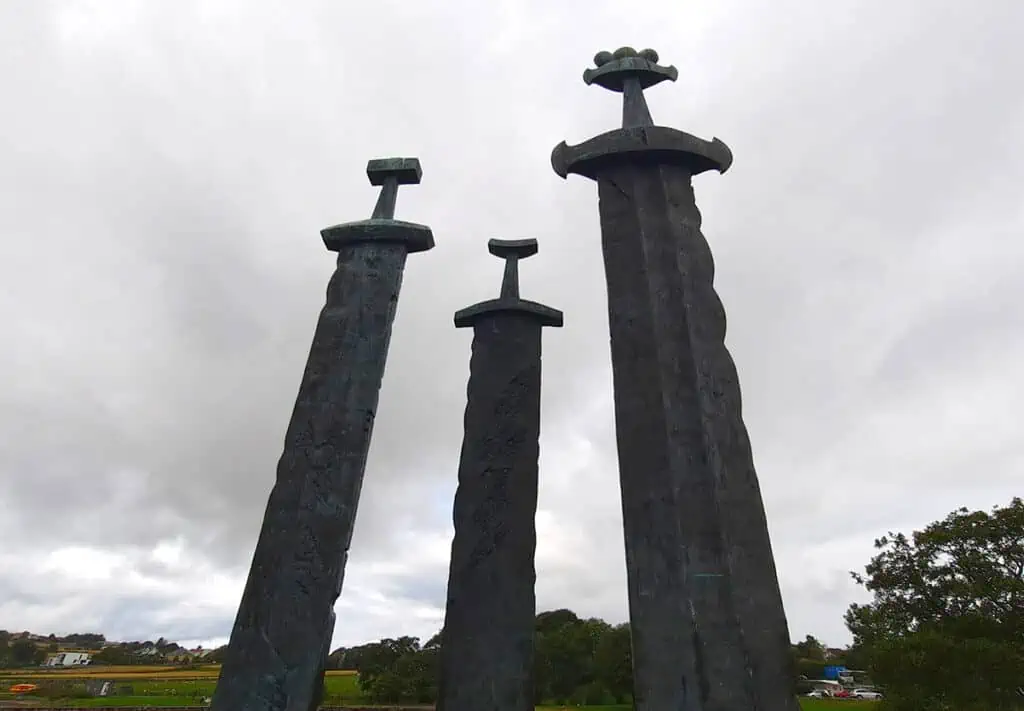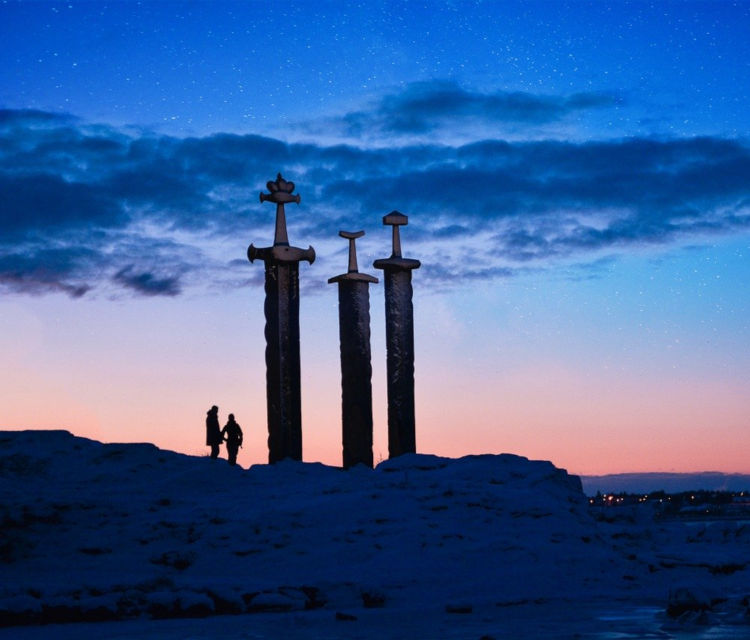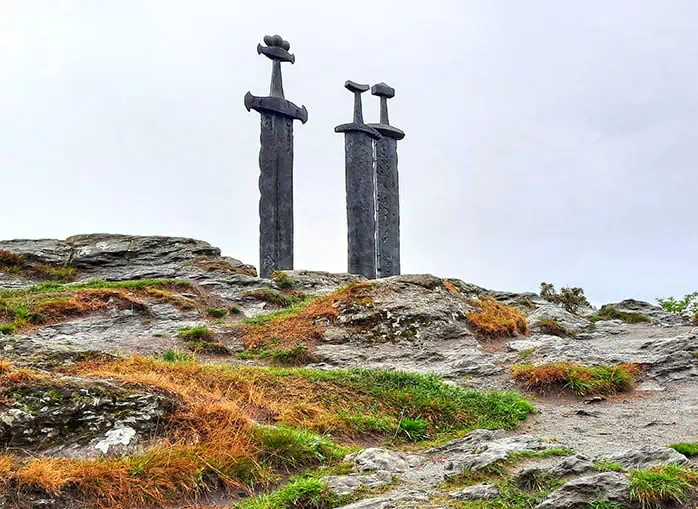Introduction
On the shores of Hafrsfjord, Norway, stands one of the most iconic monuments in Scandinavian history—Sverd i Fjell, or Swords in Rock. This powerful symbol of unity, peace, and freedom commemorates the pivotal Battle of Hafrsfjord around 872–880 AD, during which King Harald Fairhair emerged victorious, uniting the Viking clans under one kingdom. The three massive bronze swords embedded in rock reflect the importance of this battle in shaping the future of Norway.
The Battle of Hafrsfjord: Uniting Norway
The Battle of Hafrsfjord is considered the defining moment in Norwegian history. King Harald Fairhair, determined to consolidate power and create a unified Norway, fought against several rival Viking kings who controlled fragmented territories across the country.

Around 872 AD, Harald led his forces into battle against these regional rulers, finally securing victory around 880 AD. His triumph marked the unification of the Viking clans, creating the first true kingdom of Norway. This victory is seen as a turning point, transforming Norway from a collection of warring tribes into a cohesive kingdom under one ruler.
The Sverd i Fjell Monument
Erected in 1983, Sverd i Fjell is a monument that embodies this historic unification. Located at Hafrsfjord, the site of the battle, the monument consists of three giant bronze swords that stand nearly 10 meters tall. They are planted into solid rock, symbolizing peace, strength, and unity.
The hilts of the swords are replicas of Viking-era weapons, adding authenticity to the tribute. Each sword represents a different aspect of the victory—one stands for peace, another for unity, and the third for freedom. The swords are deliberately fixed into rock to symbolize that they will never be drawn again, reinforcing the idea that the conflicts between the Viking tribes were forever put to rest by Harald’s unification of Norway.
The Symbolism Behind the Swords
The swords’ symbolism goes beyond just victory. They represent the lasting peace that Harald’s conquest brought to Norway. By embedding the swords in stone, the monument emphasizes the end of internal strife and the birth of a unified kingdom.

One of the most striking elements of the monument is how it connects the past with the present. Though inspired by an ancient battle, the message of peace and unity resonates strongly even in modern times. Sverd i Fjell reminds Norwegians of their shared heritage and the importance of maintaining harmony within the nation.
Historical and Cultural Significance
The monument also holds deeper cultural significance. The Viking Age, during which the battle took place, was a time of expansion, warfare, and social transformation. Vikings were known for their martial prowess, exploration, and leadership, and the figure of Harald Fairhair exemplifies the ambition and courage that shaped Scandinavian history. His efforts to unite the country were essential in laying the foundation for Norway’s monarchy and governmental structure.

Moreover, Sverd i Fjell serves as a symbol of national identity, evoking a sense of pride in Norway’s rich Viking heritage. The swords not only commemorate a crucial military victory but also serve as a reminder of the sacrifices made to achieve peace and unity.
Conclusion
Sverd i Fjell is more than just a monument—it is a tribute to Norway’s transformation from a land of warring tribes to a united and peaceful kingdom. Through the Battle of Hafrsfjord, King Harald Fairhair set the stage for the creation of modern Norway. The three swords standing tall in the rock symbolize peace, unity, and freedom, values that continue to resonate in the hearts of Norwegians today. This monument stands as a timeless reminder of the strength it took to forge a nation and the importance of maintaining peace and unity for future generations.

